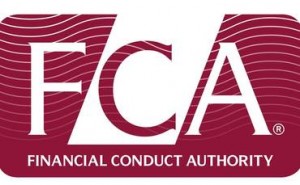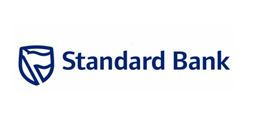
The multi-year efforts of the UK’s Financial Conduct Authority (FCA) has resulted in a fine it announced today, imposing a civil penalty of £7,640,400 against Standard Bank PLC (Standard Bank) the UK subsidiary of the South Africa headquartered Group under its brand name.
The fine is connected to failings relating to Standard Bank's anti-money laundering (AML) policies and procedures over corporate customers connected to politically exposed persons (PEPs), according to the regulator's press release, for periods between 15 December, 2007 and 20 July, 2011. The fine was determined based on the firms revenues during the relevant period, and based on an eligible discount of 30% due to its cooperation with the FCA.
During this time the FCA states that Standard Bank failed to comply with Regulation 20(1) of the Money Laundering Regulations because it failed to take reasonable care to ensure that all aspects of its AML policies were applied appropriately and consistently to its corporate customers connected to PEPs.
A PEP is defined by the FCA as an individual who is or has, at any time in the preceding year, been entrusted with a prominent public function and an immediate family member, or a known close associate, of such a person.
Financial Conduct Authority Hot about AML Compliance
AML compliance has become a “hot topic” for UK’s Finanical Conduct authority (FCA), as told to Forex Magnates' reporters during a phone interview with a member of the financial watchdog’s press office.
The regulator expects its member firms, even more, to tighten their compliance to applicable AML rules that they are bound by, and apply guidance previously issued on 9th December, 2011 by the FCA.
According to Forex Magnates' sources, and people familiar with the regulatory landscape for financial services firms in the UK, the FCA will only bring a case that it's confident in against a member firm, as the firm has a 14 day period to either concede and pay the civil penalty, or 28 days to bring the matter to court for litigation.
Following any negotiations, this amount could change slightly, as told to Forex Magnates' reporters, and a statement from Standard Bank indicated the final penalty was already reduced to "indicate the bank's willingness to bring the matter to a swift conclusion."
Forex dealers and brokers under AML related mandates have had regulatory pressure increase in the last decade following the Patriot Act enacted by the U.S and followed internationally with similar rules in place by respective jurisdictions of sovereign countries.
Standard Bank Issues Statement on FCA Fine
Forex Magnates' reporters contacted a member of Standard Bank's press office in South Africa, and was provided with an official statement that it had prepared in agreement with the FCA as the investigation is still open and under certain legal restrictions, with regards to what could be said. The statement said, among other things that, "The FCA made no finding that the bank had ever handled the proceeds of crime."

We were told that the findings had a non-material impact on the bank's financial position and had already been accounted for, as the period under question did not include the most recent few years (as noted above).
Shares of Standard Bank traded on the JSE, have been on the up-and-up in recent years, and closed higher today despite the news, as the information appears to have already been factored in and/or the size of the fine miniscule in terms of the bank's overall financial position. Standard Bank is the UK subsidiary of Standard Bank Group, South Africa’s largest banking group.
Background on Investigations on the AML and Politically Exposed Persons.
Excerpts of the background of the FCA decision notice today against Standard Bank show that although the firm had existing AML policies and procedures, some of the processes weren't strong enough, and lacked additionally required steps, and in some cases the bank's efforts didn't meet aspects of its own policies as can be seen below. However, the bank has since taken steps to remedy this (see bottom of article):
During the relevant period, Standard Bank had business relationships with 5,339 corporate customers of whom 282 were linked to one or more PEPs. As part of its investigation, the FCA reviewed Standard Bank’s policies and procedures and a sample of 48 corporate customer files, all of which had a connection with one or more PEPs. The results of this review highlighted serious weaknesses in the application of Standard Bank’s AML policies and procedures. This meant that it did not consistently:
- Carry out adequate EDD measures before establishing business relationships with corporate customers that had connections with PEPs; and
- Conduct the appropriate level of ongoing monitoring for existing business relationships by keeping customer due diligence up to date.
Of the 48 corporate customer files reviewed by the Authority, 31 involved customer accounts opened during the relevant period, 14 of which were opened prior to April 2009. In almost all of these cases it appeared that the customer was assigned a medium or low risk rating based solely on the jurisdiction in which they were incorporated (or in some cases the jurisdiction in which their parent was incorporated). The Authority found clear high-risk indicators on the majority of these files which should have led to a high-risk rating being assigned.
High-Risk Customers noted as Medium Risk (for Money Laundering)
As can be seen in the excerpt below, controls were in place but not robust enough - which resulted in a mislabeling of the money launder risk profile, in the examples below from the FCA decision notice today:
For example, two customers classified as medium risk, were both involved in the mining of precious metals (an industry identified by Standard Bank as being high risk), both incorporated in jurisdictions identified by Standard Bank as being of high risk and both connected to PEPs. Despite these clear high risk factors, they had been classified as medium risk as their parent companies were listed on recognised investment exchanges.[…]
However, while this improved the process by which staff classified customers as low, medium or high risk, in practice this classification did not directly feed into the level of due diligence carried out on files. Of the 48 files reviewed by the Authority, 17 involved customer accounts opened after April 2009. The Authority found that 15 of these customer accounts were correctly classified as high risk, and so should have been subjected to EDD. […]
Know Your Customer (KYC) ) Under Pressure
The importance of know-your-customer (KYC) requirements are many. This helps determine suitable risk and understanding investment objectives, while building rapport and genuine relationship. However, it's a must for firms in order to adhere to applicable AML, since as firms learn who there existing or prospective customer are, this could serve as a basis to detect and prevent a high-risk profile client from trading with the firm or apply added monitoring as needed.
The decision notice from the FCA today also contained the following excerpts:
Standard Bank did in many cases take some steps towards applying EDD. This included for example, verifying the customer’s business activities with documentary evidence. However, in the majority of the cases reviewed by the Authority this level of EDD was not sufficient given the risks involved. For example, Standard Bank did not consistently verify the customer’s and/or related PEP’s source of wealth or the funds to be used in business relationship as required by its policies.[…]
For example, in one of the files reviewed, the customer, a listed company in a high risk jurisdiction, operating in a high risk industry, was majority owned by a private company. Although Standard Bank believed it knew the identity of the customer’s ultimate beneficial owner, it was unable to obtain sufficient documentary evidence to verify the ownership structure of the privately owned parent company. A request to waive this verification requirement was made to Standard Bank’s compliance department. The waiver was granted on the basis that:
“[The Company] is a well-established, managed and listed company in [High Risk Jurisdiction]. Although, we do not have all the details of single largest shareholder of the company, the founder and his brother remained the key men of the company. Lacking of such information would not have a significant negative impact on our bank’s position as compared with [Company’s] other existing banks.”
A full copy of the FCA decision notice can be found on the regulator's website.
Standard Bank Strengthens AML and Risk Assessment
Standard Bank South Africa's number of inclusive banking customers on the rise in the last three years, as can be seen in the below chart from its corporate website.
Since 2010, the bank has embarked on an extensive remediation plan including:
![Number of Banking customers on the rise [source: Standardbank.com]](https://www.financemagnates.com/wp-content/uploads/fxmag/2014/01/SB-cust-300x257.jpg)
Number of Banking customers on the rise [source: Standardbank.com]
- Refreshing all active client files
- Conducting a Compliance and Business review of all active customer relationships
- Significantly increasing the resources of its anti-money laundering compliance function
- Introducing an electronic client on-boarding system to assist with the consistent application of the bank's policies























